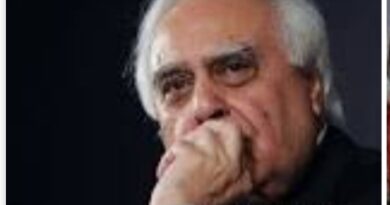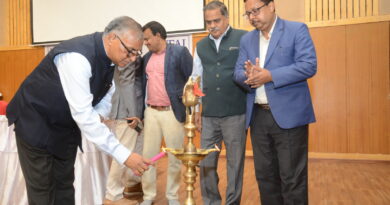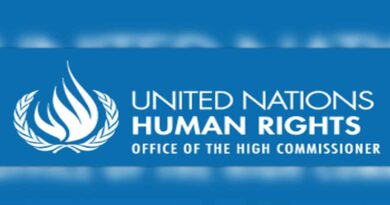Indian Lawyer Invited by World Bank: To Discuss Bridging the Gender Gap & Enhancing Access To Justice
Hyderabad, 6th, July,2024
(Judicial Quest News Network)
In a compelling narrative of personal resilience and professional dedication, Payal Chawla, a seasoned lawyer and domestic abuse survivor, reflects on her tumultuous journey before the Supreme Court of India. Her legal battle, spanning eight years, highlighted issues of pregnancy discrimination and served as a catalyst for founding India’s sole all-women law firm, JusContractus.
I am a lawyer with a Master’s degree in Law from one of the top universities in the world. I belong to a select group of women privileged enough to enjoy steadfast familial support. I am an empowered woman in every sense, yet these injustices happened to me.she added.
“My aim was to bridge the gender disparity in the legal industry,” Chawla asserts, emphasizing the broader societal context in which her firm operates. “Women globally face violence, discrimination, abuse, and harassment. Many endure these injustices without support or resources.”
Chawla’s vision for JusContractus was clear from its inception – to create a workplace that resonates with her experiences and supports women professionals facing similar challenges. “As a mother, flexibility was crucial,” she explains, noting the firm’s commitment to accommodating the dual responsibilities of work and family life.
“Women in the workplace often face significant wage disparities and added domestic pressures,” Chawla observes. “At JusContractus, we provide a safe space where women can thrive professionally without sacrificing their personal lives.”
The firm’s focus on commercial law and arbitration aims not only to leverage Chawla’s expertise but also to empower women in a traditionally male-dominated field. “Commercial law offers substantial financial opportunities,” she points out, underscoring the importance of women claiming their share in this sector.
Chawla acknowledges critiques of gender-segregated businesses but counters, “Women have long been victims of economic stratification. Until true equality is achieved, supporting women-led initiatives is crucial.”
Reflecting on her firm’s success, Chawla celebrates its profitability and positive cash flow while recognizing ongoing challenges. “Overcoming societal biases and ensuring work-life balance are constant endeavors,” she admits. “But witnessing our team’s growth and impact reaffirms the importance of our vision.”
She said that despite these challenges, women are expected to perform equally to their male counterparts. In the legal profession, this challenge is intensified by the dual nature of their workplaces: the law firm and the courtroom. In court, lawyers face adversaries in an environment beyond their control. Similarly, I cannot influence the personal circumstances of these young women at home. However, within our firm, I take full responsibility for fostering a supportive and equitable atmosphere.
Chawla submitted that women continue to strive for true equality, grappling with a multitude of challenges: subjugation, unpaid labour, and unequal pay. Discrimination remains pervasive in male-dominated fields, often fuelled by threats to masculinity and perpetuated by exclusive ‘boys’ club’ power dynamics. Issues related to pregnancy and motherhood further complicate matters. Even those who avoid explicit misconduct still encounter biases from dominant male counterparts. Their voices are frequently dismissed in boardrooms or drowned out by a dominant male narrative. Women also contend with the persistent threats of assault, sexual harassment, and discrimination.
Chawla Mentioned that yet, amidst this journey towards achieving equality for women, it remains crucial that women support each other. In recent years, we’ve witnessed a growing trend of women forming strong bonds through conferences, meetings, off-sites, and WhatsApp groups. However, for these initiatives to yield substantial economic gains, women must adopt a more strategic approach. Beyond seeking funding, there’s a need for a paradigm shift towards wealth creation, challenging the perception that associates money with negativity.
Other panelists included Supreme Court of Peru Judge Janet Tello, and Chief Registrar, Judiciary of Kenya Paul Ndemo.The session was moderated by Gender Director of the World Bank Group Hana Brixi.
Chawla Said that when she founded the firm, she envisioned a work place that resonated with her own experience.
“Ensuring work-life balance is another challenge. As women often juggle multiple roles at home and work, creating a flexible and supportive work culture has been crucial. This includes implementing policies that allow for flexible working hours, remote work options, and a strong support system for personal and professional development. At our firm, we implemented flexible work arrangements and invested in technology early on, well before COVID-19. Our small firm was ahead of most other law firms in India. We did not lose a single day’s revenue during COVID-19. This is something I am very proud of.”
In conclusion, Chawla calls for global recognition and support of women-led businesses. “There is a critical need to foster and financially support initiatives like ours,” she asserts, urging the international community to integrate these efforts into the global agenda.
Payal Chawla’s journey is a testament to resilience, advocacy, and the transformative power of women supporting women in the legal profession and beyond.




